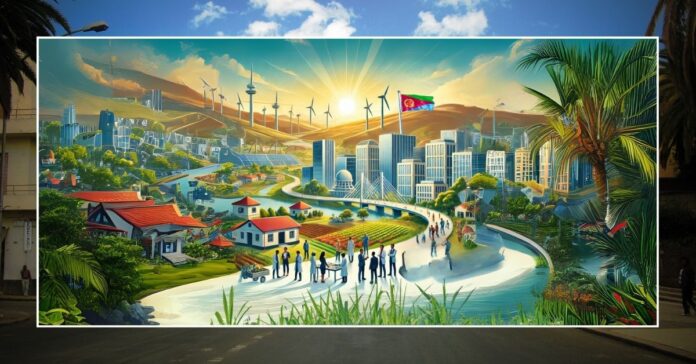Introduction: Recent discussions on Eritrean media platforms and online forums have attempted to draw parallels between the downfall of Bashar al-Assad’s regime in Syria and the hypothetical collapse of Isaias Afwerki’s regime in Eritrea. However, I believe such comparisons are misguided. Similar predictions were made during the Arab Spring, a period that saw the overthrow of long-standing leaders like Libya’s Muammar Gaddafi and Egypt’s Hosni Mubarak, yet Isaias remained firmly in power. Even when there was a coup attempt against Isaias two years after the Arab Spring (Forto 2013 Mutiny), he retained power due to his robust security apparatus. Furthermore, Eritrea’s unique historical, cultural, and societal context sets it apart from these nations, making a similar revolutionary wave highly unlikely.
Instead of focusing on speculative scenarios (because literally anything can happen in the Horn of Africa), the emphasis should shift towards planning for Eritrea’s reconstruction and rehabilitation. Whether through sweeping reforms by the PFDJ (though improbable) or the inevitable death of Isaias Afwerki (which could happen within a decade due to advanced age), Eritreans at home and abroad must prepare for the opportunity to launch their own version of a “Marshall Plan” for the nation’s future.
Eritrean Reconstruction Scenarios:
The reconstruction and development of Eritrea could follow one of two paths. The first would require the Eritrean government (PFDJ) to enact sweeping reforms that institutionalize the branches of government rather than treating them as auxiliary, establish a functional economic framework, implement a constitution, and foster dialogue and national reconciliation. Such measures would create an environment that encourages Eritreans abroad to return and contribute to rebuilding the country across critical sectors such as healthcare, industry, telecommunications, energy, agriculture, finance, and more. Eritrea’s diaspora includes thousands of skilled professionals with the education and expertise needed to drive this transformation. Failing to welcome those willing to contribute would be a monumental missed opportunity for the nation’s future.
However, meaningful reform cannot stop at cosmetic changes, such as appointing younger members to the politburo or replenishing the Central Committee to give the illusion of change while maintaining the status quo. True change requires dismantling or rectifying harmful policies that have stifled Eritrea’s progress. At present, trust between the Eritrean diaspora and the government regarding opportunities to return and support economic development is virtually nonexistent. Restoring this trust demands comprehensive political reform alongside sweeping economic changes. Only then can Eritrea harness the full potential of its diaspora to rebuild and thrive.
The second scenario envisions nature taking its course, with Isaias eventually passing away. In such a situation, a transitional committee of high-ranking government officials or military officers might take the reins until a successor is appointed (though this is purely my speculation). A new leader could potentially adopt a more progressive and pragmatic approach, moving away from Isaias’s rigid adherence to Maoist-Marxist ideology. History provides examples of such transitions—Deng Xiaoping succeeded Mao Zedong after his death and implemented sweeping reforms that transformed China into a socialist market economy, blending state enterprises with private businesses. These reforms catalyzed China’s rise into one of the world’s largest economies.
If Eritrea were to experience a similar shift under new leadership, significant reforms could pave the way for a brighter future. Such changes would inspire confidence among Eritreans at home and abroad, motivating the diaspora to return and contribute to the country’s recovery and growth. However, this vision depends on the creation of an organized coalition representing Eritreans from all walks of life. This coalition must prioritize unity over petty politics, working collaboratively to rebuild Eritrea’s foundations. It should encompass professionals from the diaspora across sectors like education, healthcare, technology, engineering, and business, ready to partner with Eritreans inside Eritrea to restore the nation.
Conclusion:
The rebuilding of Eritrea demands more than hope; it requires vision, preparation, and collective action. Whether through reform within the existing government or a new era of leadership, Eritreans must focus on creating the conditions for sustainable development and national healing. The diaspora holds a critical key to this process, offering the skills, expertise, and resources needed to transform Eritrea into a thriving nation. By prioritizing unity, accountability, and strategic planning, Eritreans can turn a period of transition into a historic opportunity for renewal and progress.

